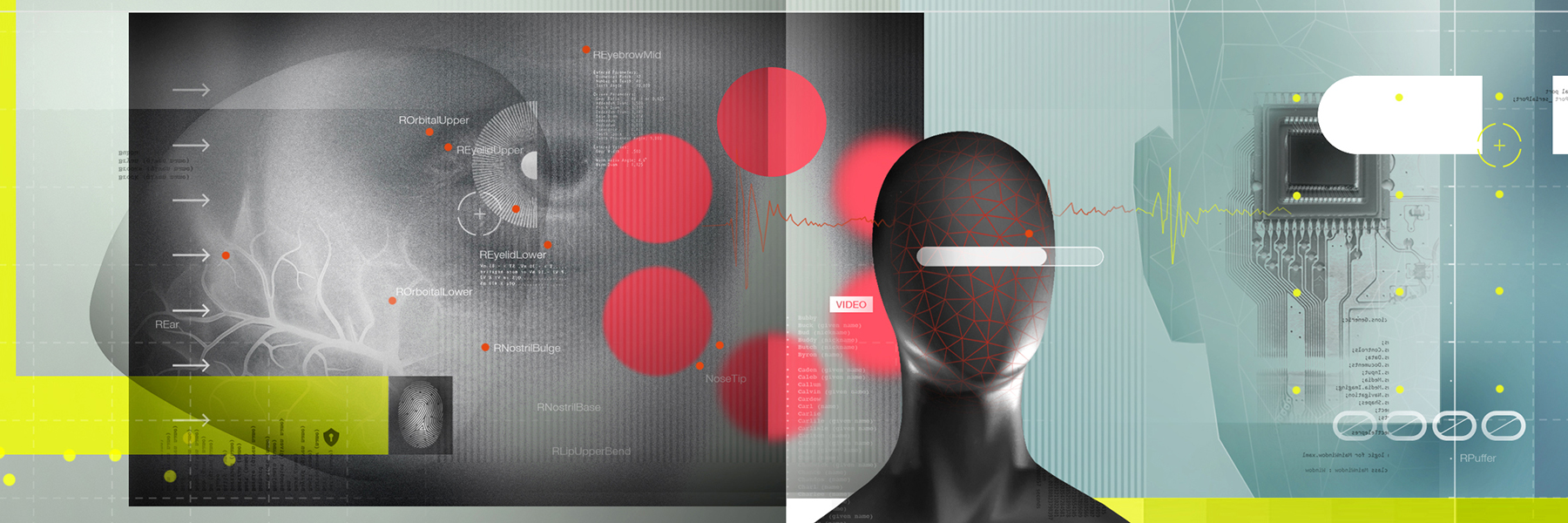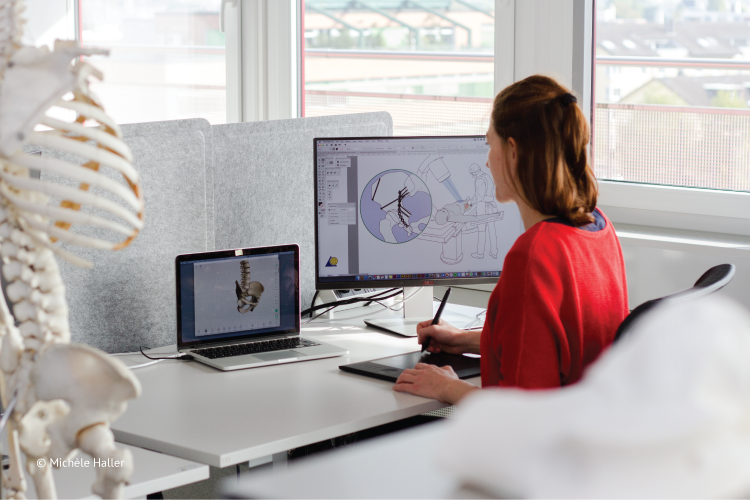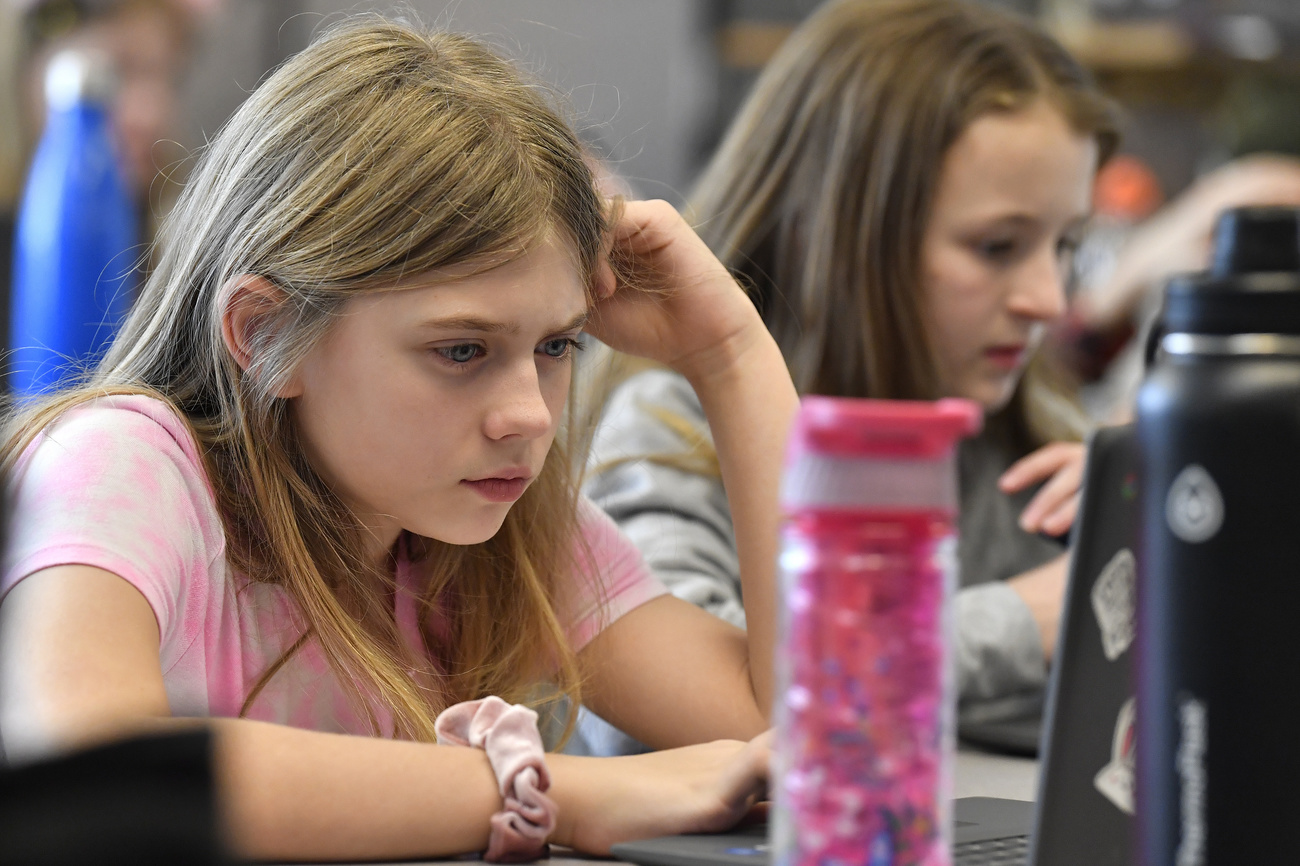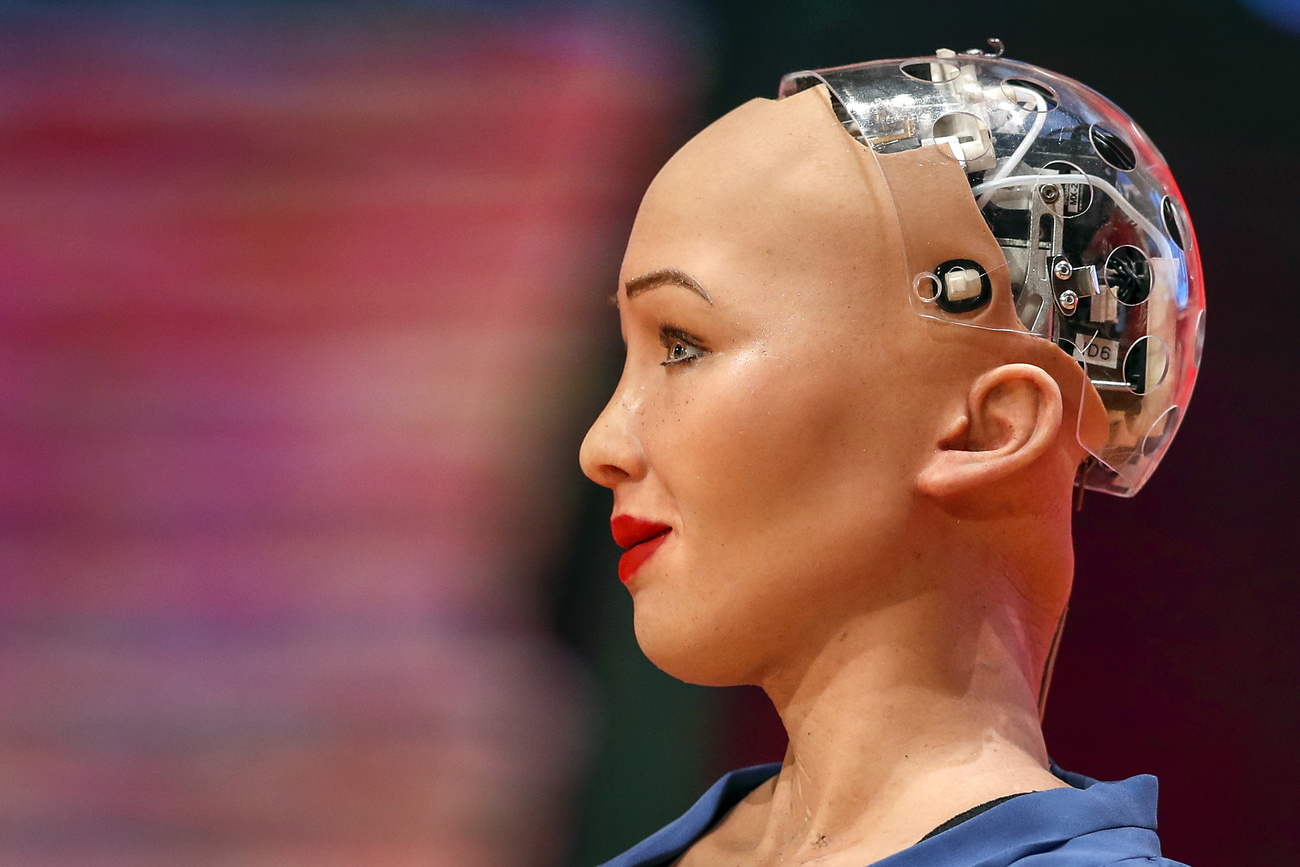How AI is affecting Switzerland’s creative workforce

Workers in creative industries are feeling the pinch in a Swiss economy that’s expected to take massive advantage of artificial intelligence-based technologies. It’s part of a shifting global job market where the gains and losses due to AI are coming to light.
Switzerland is set to benefit from AI more than any other European country, with potential to grow the country’s GDP by as much as 11%, according to multiple studies. The country’s finance and pharmaceutical industries are expected to gain the most, but other sectors will also see transformation. People working in creative and highly skilled fields such as writing, programming and visual design are feeling the effects of a job market upheaval that is already underway.
“Generative AI has caused one of the biggest technology shocks in recent times. It is inevitable that it will have repercussions on people and businesses,” says Ozge Demirci, a researcher at Harvard Business School and author of international researchExternal link on the impact of generative AI on freelance jobs. The research, conducted in more than 200 countries including Switzerland, found that one-fifth of writing and coding jobs disappeared just eight months after the arrival of ChatGPT. And the number of jobs in image generation has decreased by 17%. “I think almost all jobs will be affected by generative AI because it is a very dynamic technology. The question is who will adapt best,” says Demirci.
The study analysed a large database of a leading global freelancing platform. The results were then compared with Google search trends before and after the advent of ChatGPT. Demirci and his colleagues showed a significant growth in search terms such as “ChatGPT and writing” and “ChatGPT and coding” compared to other types of tasks. “This may explain the reduction in demand,” she says.
This is also true for Switzerland: almost three-quarters of the respondents to a surveyExternal link by the Digital Society Initiative of the University of Zurich would be prepared to put AI in charge of tasks performed by teachers, web designers and journalists. Respondents working in those industries also said they were more open to using ChatGPT for their work than others who do manual jobs, such as carpenters.

More
Swiss employees less protected from AI risks than in the EU
‘Me, an illustrator for 23 years, replaced by artificial intelligence’
Less than two years after ChatGPT’s market launch, some Swiss workers in the creative sector are reporting job losses due to generative AI. A freelance illustrator who worked for more than 20 years for one of the Swiss media group Ringier’s weekly newspapers told SWI swissinfo.ch that her work was replaced by AI-generated content in July 2023. The illustrator, who wishes to remain anonymous, says the company dismissed her via a generic letter written in English, which she believes was generated with ChatGPT. “I am outraged that after 23 years they did not even bother to address me personally, but used ChatGPT,” says the woman.
After its collaboration with the illustrator ended, the former employee says the newspaper started publishing AI-generated images and collages. The illustrator had already noticed a steady decline in fees over the years—from CHF1,000 for a single illustration to CHF400 for two. “It had become increasingly difficult to survive. But I didn’t think I would be replaced so quickly,” she said.
When questioned by SWI swissinfo.ch, representatives from the Ringier media group denied replacing collaborators with AI or dismissing staff with AI-generated letters. They said that Ringier uses AI for tasks like suggesting headlines and creating article drafts from external sources to boost efficiency, not for replacing personnel.

More
The ethics of artificial intelligence
More companies are turning to AI-generated images
The pressure on creative workers is also increasing as more companies turn to AI for image generation. The Swiss underwear brand Calida recently ran an AI-generated ‘test campaign’External link to explore the technology’s limits and possibilities. Other international fashion brandsExternal link have launched similar campaigns that require little or no involvement from human designers. Around the world, visual artists are suing AI companiesExternal link for using their artwork to train image generators without their consent and without paying any copyright fees.
Tamara Aepli, a Swiss freelance medical and scientific designer and illustrator, has also felt the effects of this shift. While she attributes the decline in her work and wages primarily to companies’ cost-saving measures in tough economic times, she acknowledges the challenges posed by AI.
Aepli says she often uses ChatGPT for brainstorming, translations, writing and coding work, but she still finds it quite difficult to generate decent images with AI. “The results are usually random and very difficult to control,” she says.

AI: an enemy or ally of journalists?
AI is also having an impact on journalists and writers. A journalist from French-speaking Switzerland employed by a major Swiss media company reportedExternal link that she was fired because her role would be replaced by an AI-driven translation tool. “I was told that my texts would be replaced by articles from my German-speaking colleagues, translated from German to French by an automatic tool and proofread by an external person,” the reporter anonymously told the Awp news agency. Similar concerns have been raised by several French-speaking journalists at Migros Magazine.
Martina Huber, a freelance science journalist, doesn’t attribute her recent struggles directly to AI, but to declining rates and the increasing tendency of media outlets to exchange content without fairly compensating freelancers. Despite this, Huber is confident that AI cannot fully replace her work. “AI does not know the concept of truth – a human will always have to check the correctness of the facts,” she believes.
So far, Huber’s experiences with AI tools have been largely positive, as she has used them to save time on tasks such as interview transcription.
More
Overall effects of AI on workers remain unclear
According to Christian Gschwendt, who studies the effects of AI on the labour market, it is normal that experiences with generative AI are so heterogeneous. “It is not yet clear whether the overall impact of software such as ChatGPT will be positive or negative for workers,” says the researcher at the University of Bern. He expects generative AI will lead to job losses, but also to increased productivity and the creation of new jobs.
While generative AI mainly poses a risk to staff with high levels of education and specialisation, compared to those who do manual jobs, specialised workers could also benefit most from the technology.

More
Newsletters
“For many occupations that are highly exposed, it is not certain that they will be completely replaced, provided workers can use AI to their advantage and work better,” says Gschwendt. But to mitigate the risk of job losses, governments should work on policies to develop the skills of staff who might be replaced, says a recent study from the International Monetary FundExternal link.
Workers in Switzerland seem to prefer a low-risk approach to dealing with workplace changes surrounding AI technologies. According to a surveyExternal link of nearly 6,000 people, the Swiss population is willing to earn almost 20% less and work in less highly-qualified sectors to have a job with a lower risk of automation and therefore more security.
The illustrator who used to work with Ringier, now unemployed, is also considering reorienting herself to another, less risky field. “You can’t make a living from illustration,” she says. “Because of AI, illustration as a creative craft is dead.”
Edited by Veronica DeVore/gw

More
Has Switzerland missed the train on AI regulation?

In compliance with the JTI standards
More: SWI swissinfo.ch certified by the Journalism Trust Initiative











You can find an overview of ongoing debates with our journalists here . Please join us!
If you want to start a conversation about a topic raised in this article or want to report factual errors, email us at english@swissinfo.ch.